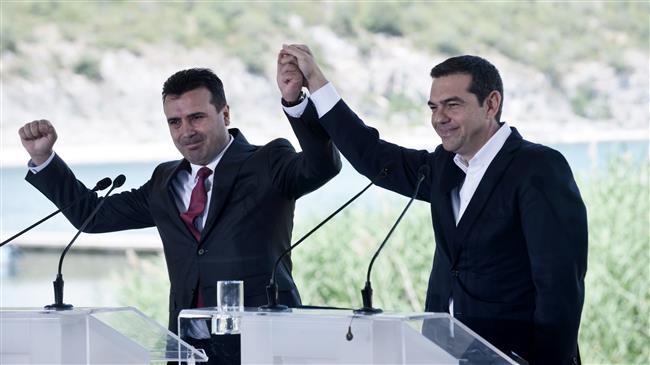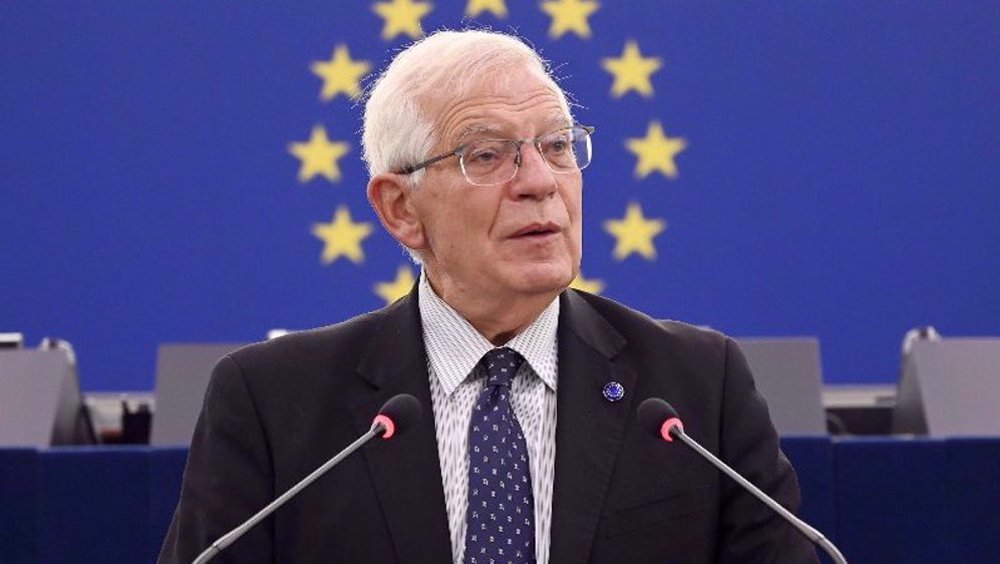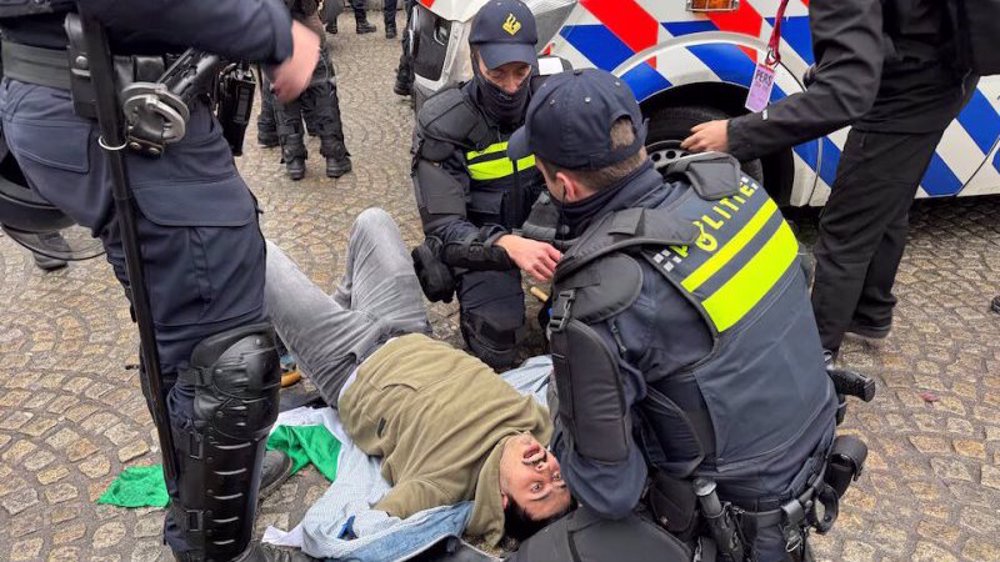Greece, Macedonia sign deal, face opposition still
The foreign ministers of Greece and Macedonia have officially signed an accord to rename the former Yugoslav republic as the “Republic of North Macedonia,” potentially ending a dispute between the two countries.
Greek Prime Minister Alexis Tsipras and his Macedonian counterpart, Zoran Zaev, were present at the signing ceremony on Lake Prespa, in northern Greece and bordering Macedonia and Albania on Sunday.
The name dispute between Greece and Macedonia has been running for some 27 years, since the break-up of the former Yugoslavia.
Athens argues that the name Macedonia implies a territorial claim to a Greek region of the same name.
Under the terms of the deal, Greece would for its part stop its objections to the renamed nation joining the European Union (EU) and the NATO military alliance.
But the deal still faces many difficulties before it can be assumed safe. It will have to be ratified at the parliaments of both Greece and Macedonia, and it will have to survive a referendum in the latter country, too.
Macedonian President Gjorge Ivanov has already declared that he will not approve the accord.
Earlier, on Saturday, Prime Minister Tsipras survived a no-confidence vote pushed by the opposition over the deal with Macedonia.
The motion, tabled by the country’s main opposition party, New Democracy, was rejected by a margin of 153-127 on Saturday.
Calling the deal “harmful” to Greek interests, the opposition party has accused the government of making too many concessions in the accord.
“Today, you are all mortgaging the future of the country,” opposition party leader Kyriakos Mitsotakis told the parliament ahead of the vote.
Then, addressing Tsipras, he said, “You will be the prime minister to say ‘yes’ to everything your predecessors said ‘no’ to.”

In response, the Greek prime minister praised the agreement at the chamber and said, “This is a deal I believe that every Greek prime minister would want.”
“It not only includes a compound name with a geographic qualifier, used erga omnes, but also sets as a condition a change of the constitutional name by which the country (Macedonia) has been recognized by 140 countries. It includes a constitutional change to eradicate every irredentist term in their constitution,” Tsipras added.

Tsipras accused the opposition leader of political opportunism and “of being hostage to the far-right wing of his party.”
Earlier, police had to fire teargas and stun grenades to scatter the thousands of people who had gathered outside the parliament building in the capital, Athens, to protest the deal with Macedonia and demand that Tsipras resign.
Protests have been held in both Greece and Macedonia against any compromise.
Iranians protest against Israel after Netanyahu ICC warrant
Germany undecided on complying with ICC arrest warrants for Israeli war criminals
VIDEO | Former FBI agent criticizes US Congress for 'outright corruption'
IRGC chief urges Muslim countries to cut aid routes to Israel
'New chapter in cooperation': Iran, Venezuela sign new MoUs
Jordan sentences former lawmaker for supporting Palestinian resistance
Basij volunteer forces hold massive drills in southwestern Iran
Israeli war criminals 'not welcome', US city says after ICC ruling















 This makes it easy to access the Press TV website
This makes it easy to access the Press TV website